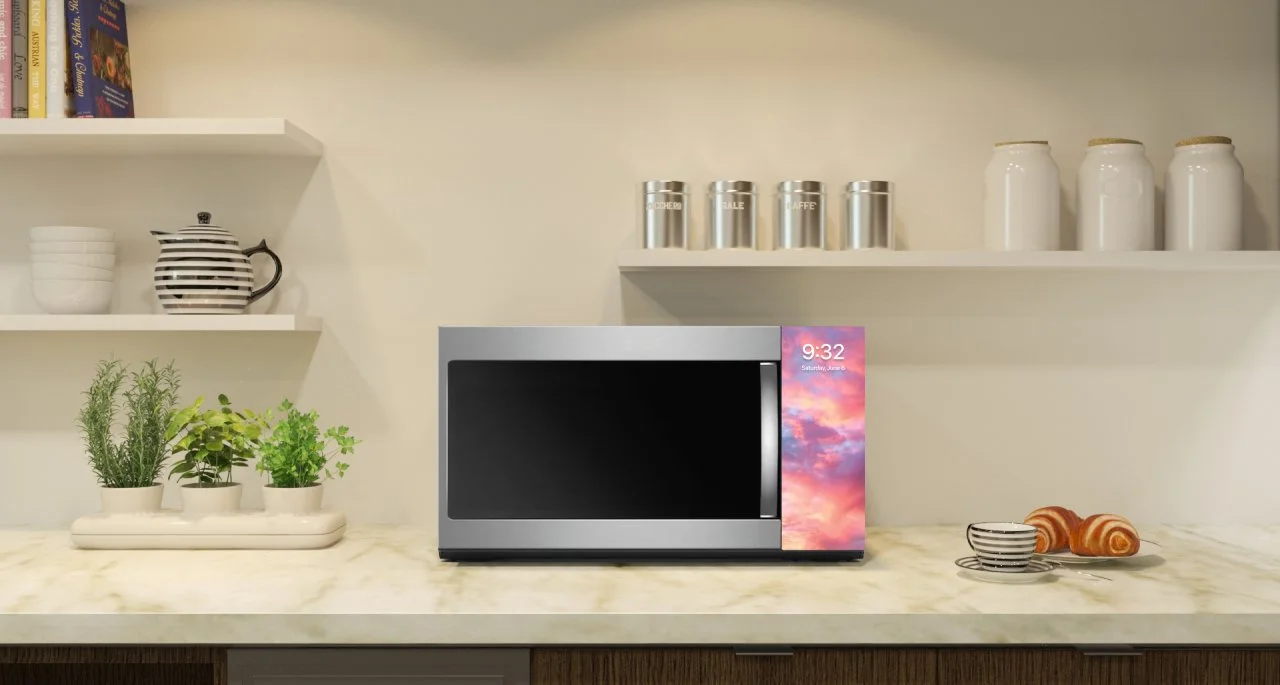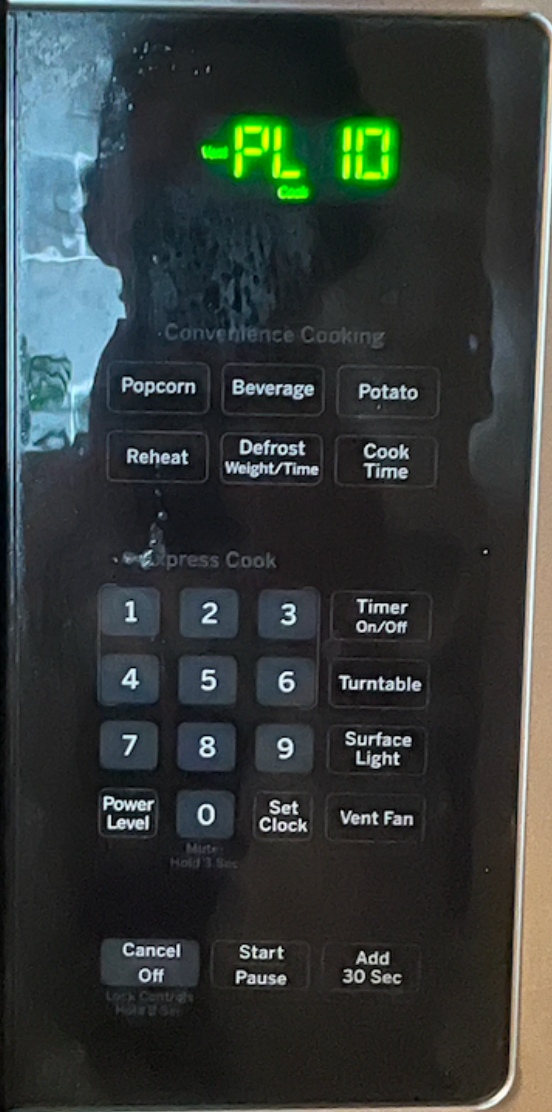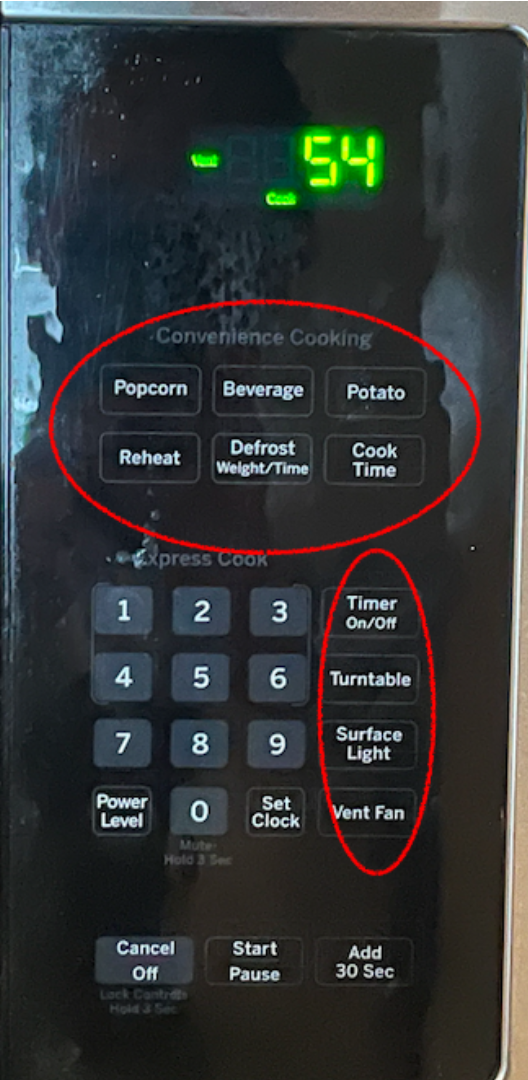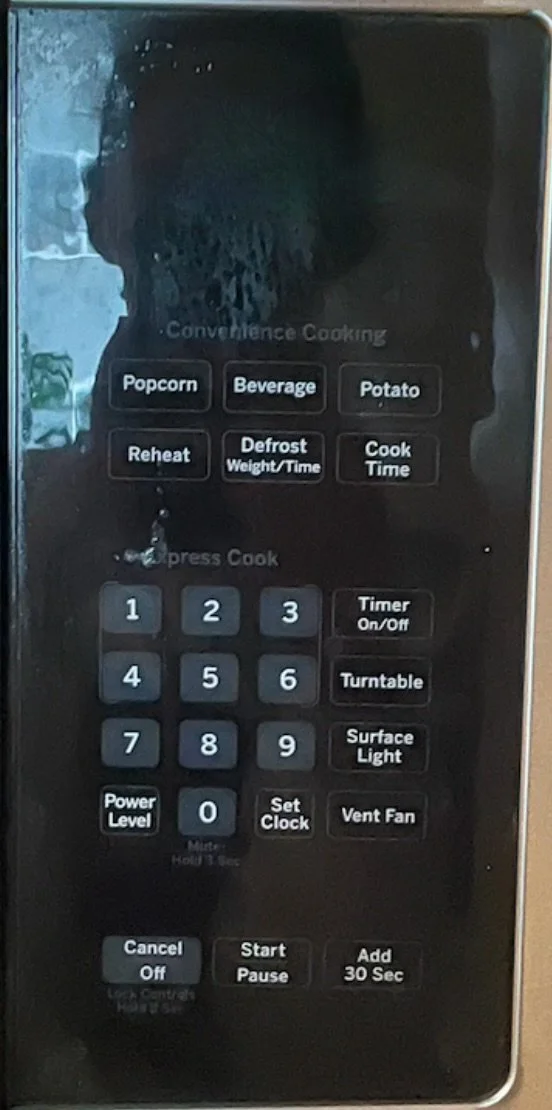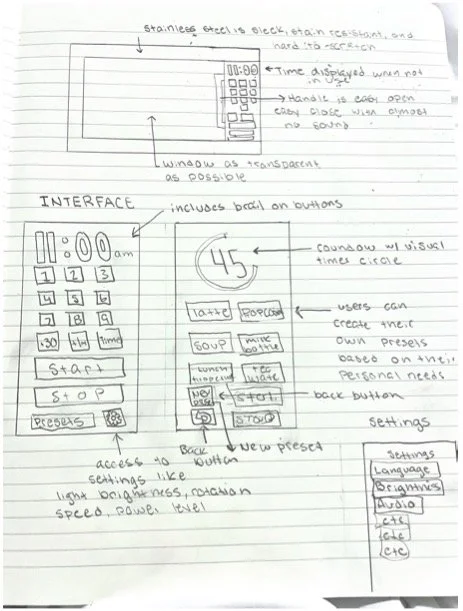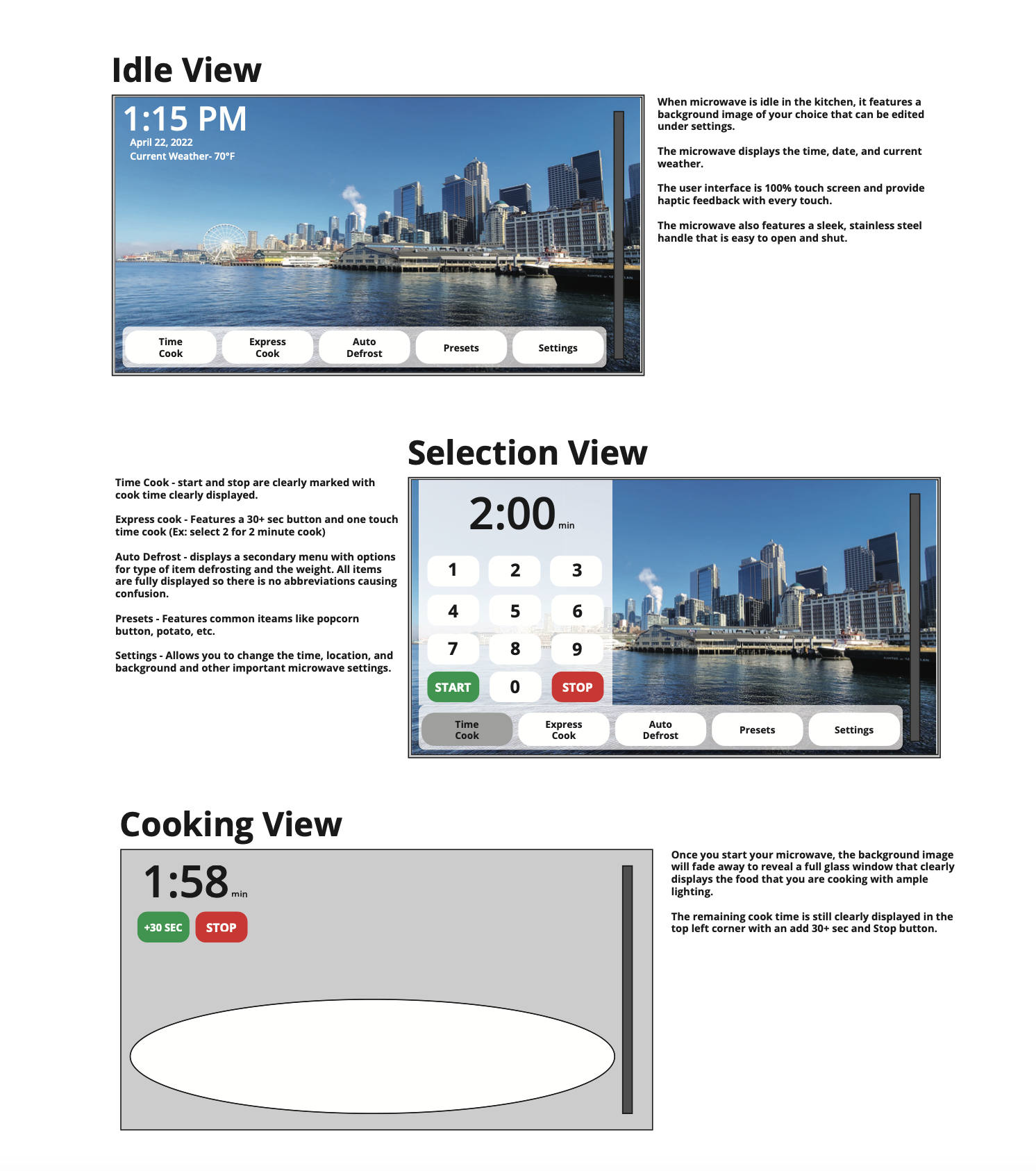The Up-To-Date, User Friendly Microwave for Everyone
The iWave
Overview
Microwave users deserve a user interface that's not only easy to navigate but also intuitive, transforming the cooking experience into something smoother and more enjoyable. This improvement is crucial for minimizing mistakes and saving precious time during meal prep.
Week 1 - User Survey
Week 2 - Heuristic Evaluation
Week 3 - Persona Creation
Week 4 - Journey Mapping
Week 5 - Task Analysis Week 6 - Preliminary Prototype
Week 7 - Final Prototype
Project Duration
Tools
Figma Photoshop
User Research
Task Analysis
Heuristic Evaluation
Persona Creation
Journey Mapping
Prototyping
My Role
Challenges
The microwave was a game-changer in kitchens, but it's been stuck in time. While other gadgets got smarter and sleeker, microwaves didn't really change. Users are left with outdated models that are more confusing than helpful, making a simple task like heating food a bit of a hassle.
Possible Solutions
Interface Upgrade: Modernize the microwave's interface to meet today's digital expectations, as most users seek improvements in this area.
Intuitive Use: Simplify the process for adjusting power levels and other settings, which users currently find non-intuitive and time-consuming.
Simplicity and Value: Focus on ease of use and affordability, since these are key factors for users when choosing a microwave.
*Current interfaces leave users scratching their heads
Research & Analysis
We then conducted a detailed survey with 15 methodically chosen questions to learn more about our target audience and their interactions with current microwaves. This approach was chosen for its dual ability to yield quantitative data, such as usage frequency, and qualitative insights, like user satisfaction levels.
Survey
User evaluation findings:
- Participants mostly use microwaves at home, averaging 1-4 times weekly.
- The primary use is reheating leftovers, suggesting less frequent use for cooking from scratch.
- Users perceive microwaved food as being inferior in quality, often too cold, compared to other cooking methods.
- When considering a new microwave, the price and ease of use are the top selection criteria.
Heuristic Evaluation
For this report, we conducted individual heuristic evaluations of 4 different microwaves following Jakob Nielsen's ten heuristics and a severity rating scale of 0-4. By conducting the individual heuristic evaluations, we were able to evaluate and identify problem areas in the usability and design of microwaves.
Recommendation 1 - Display Power Level
When the Power Level option is selected, the display should read “Power Level.” The letters “PL” are generally used to indicate power level, but we have found that to most users this is not a common phrase and causes confusion.
Finding 1 - Power Level Confusion
Severity: 3
Recommendation 2 - Familiar Presets
We’ve found that having too many presets, especially uncommon ones, tends to not only take up real estate on the microwave’s interface but also tends to overwhelm the user. Real estate on the keypad is finite, so the chosen preset buttons should be familiar to users.
Finding 2 - Uncommon Presets
Severity: 3
Finding 3 - User Manual Uncertainty
Severity 2
Recommendation 3 - Simple, Accessible instructions
Our research indicates that the instruction manuals seem to be confusing and written in technical terms that are not understood by the user. Instructions should be easily understandable and easy to access. Offer a QR code so the user can always access the manual.
Finding 4 - Inconsistent Feedback
Severity 3
Recommendation 4 - Clear Cues
Clear audio and visual cues are crucial to the overall experience when using the microwave, improper feedback leads to confusion and frustration for the user
Finding 5 - The Cook Time Conundrum Severity 3
Recommendation 5 - No Time for a Cook Time Option
Allow time to be added as soon as the user selects the first number. The user should not have to select the “Cook Time” button first. Many microwaves today allow you to select the amount of time naturally because this is the primary function of the microwave. Having to select the “Cook Time” button before entering the proper amount of time is frustrating for the user and counterintuitive.
Persona
Journey Map
Alex is away from home for the first time, he has moved into the dorms at the University Of Washington and they don’t offer microwaves in the room. Rather than buying expensive food on campus, Alex wants to get the microwave to cook meals in the dorm. Alex has two problems - short on money, short on space. He needs to buy a microwave that fits his specifications as well as his roommates.
Task Analysis
Three users were observed preforming three tasks that are essential functions of any microwaves. They are “Quick Start” or “Express Cook”, add 30 seconds, and traditional cook for one minute.
Quick Start
User opens microwave door
User places the item in the microwave
User shuts the door to the microwave
User selects “1” button
Microwave starts cooking for 1:00 automatically
Add 30 Seconds
User opens microwave door
User places the item in the microwave
User shuts the door to the microwave
User selects “Add 30 Seconds” button twice
Microwave starts cooking for 1:00 automatically
Traditional Cook
User opens microwave door
User places the item in the microwave
User shuts the door to the microwave
User selects “Time Cook” button
User enters the amount of time desired, 1:00 minute. User selects the “1” button, “0” button, and “0” button
User selects “Start” to start the cook time
Quick Start
User opens the microwave door
User places the food into the microwave
User shuts the microwave door
User selects “1” on the microwave keypad
Start +30 Seconds
User opens the microwave door
User places the food into the microwave
User shuts the microwave door
User selects “Start/+30”
User selects “Start/+30”
Traditional Cook
User opens the microwave door
User places the food into the microwave
User shuts the microwave door
User selects “1” on the microwave keypad
User selects “0” on the microwave keypad
User selects “0” on the microwave keypad
User presses “Start”
Quick Start
User grabs handle and opens microwave door
User places door in microwave and closes door
User selects 1 button on microwave
Start + 30 seconds button
User grabs handle and opens microwave door
User places door in microwave and closes door
User selects start + 30 seconds
User selects +30 seconds again
Traditional cook
User grabs handle and opens microwave door
User places door in microwave and closes door
User presses timed cook
User presses 1 button, then 0 then 0 again
User presses start
Preliminary Prototype
Final Prototype
Hi-Fidelity Prototype
Thank you!
